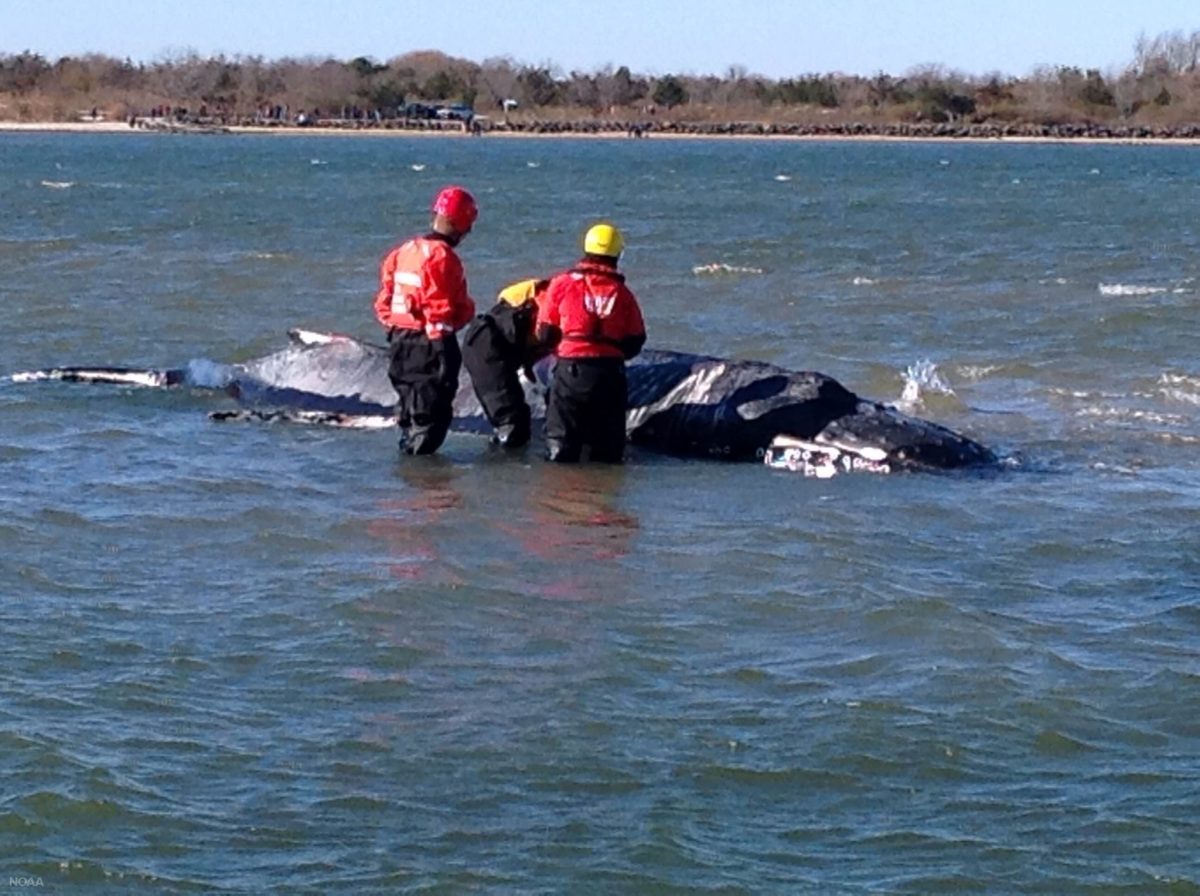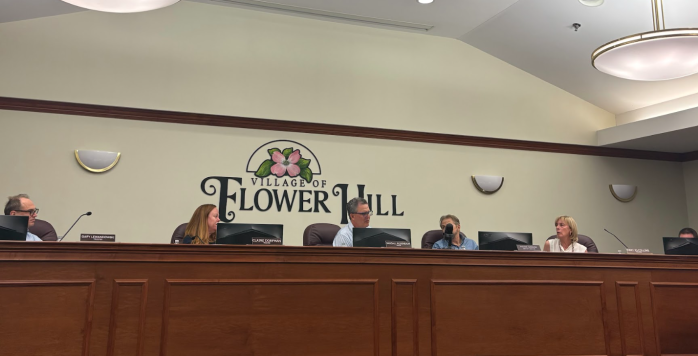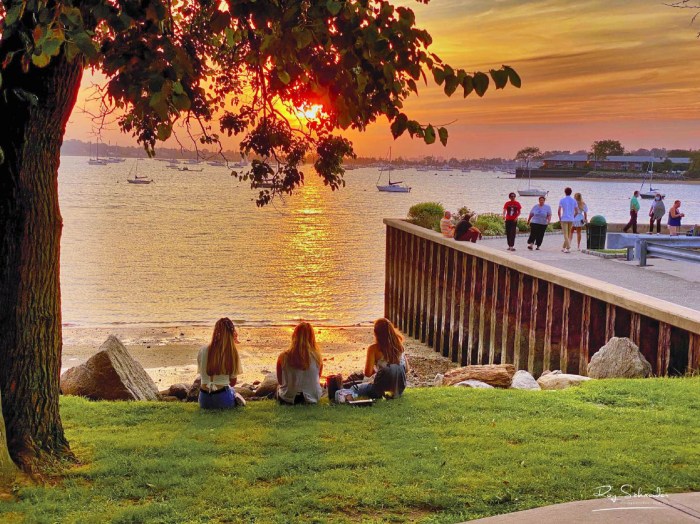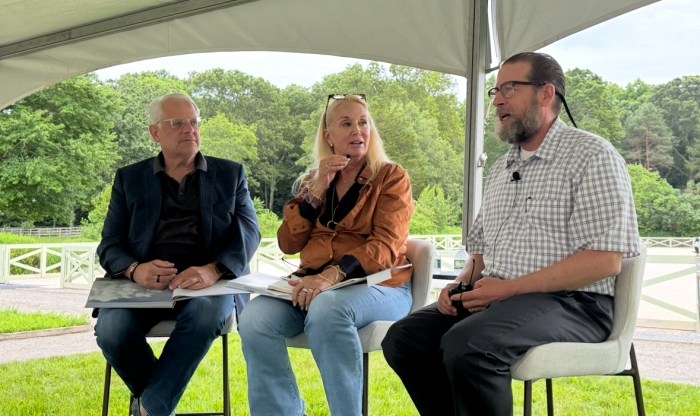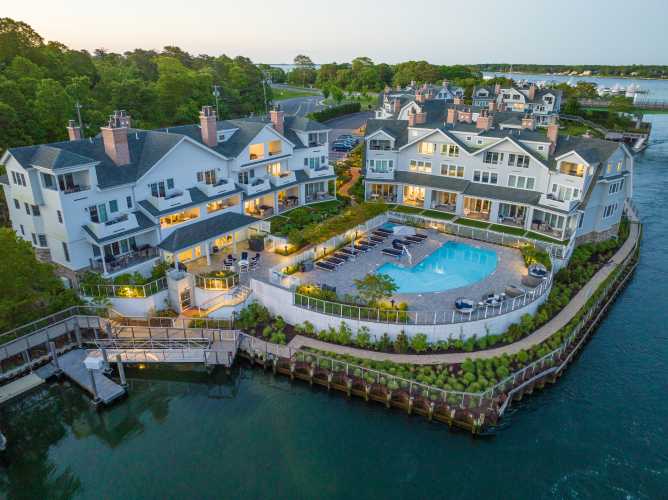A humpback whale was euthanized by marine biologists Wednesday, four days after it got stuck on a sand bar while feeding on fish in Moriches Bay and couldn’t free itself, officials said.
The 33-foot-long, 10-ton whale, which was first spotted last week feeding in Seatuck Cove—a rare event in the bay—became stranded in 1-to-2 feet of water in Hart’s Cove on Sunday. Experts with the Riverhead Foundation for Marine Research and Preservation unsuccessfully tried to move the whale that day. And efforts to make enough waves to help the whale off the sandbar during high tide were also ineffective.
A team of veterinarians with the National Oceanic and Atmospheric Administration (NOAA), the International Fund for Animal Welfare, North Carolina State University and the Riverhead Foundation released a joint statement explaining why the whale needed to be put down using injectable medications at 1:20 p.m.
“It was thin, limp, weak, minimally responsive, had evidence of neurological abnormalities and extensive skin injuries with evidence of infection,” they said in the statement. “Based upon these findings, the most humane option was to euthanize the whale since its chance of surviving in the wild was minimal.”
The incident comes after another humpback whale has been spotted swimming in the Hudson River off Manhattan recently. Two dead humpback whales were found off Long Island this spring and at least a half dozen whales also washed up in local waterways last year.
Biologists will remove the whale and perform a necropsy to determine why it became stranded in an effort to better prepare for a similar event in the future. NOAA officials noted that underlying health issues such as illness or malnutrition is often the cause of whale strandings and that refloating a sick whale can cause more harm than good.
“It’s clear that this response was not limited by resource availability; rather, the tidal conditions and other oceanic or biological factors that led to this stranding overtook any ability by our responders to rescue it,” said John Bullard, director of NOAA’s Greater Atlantic Regional Fisheries Office. “We are thankful to our partners and the community for their caring response and respect for law enforcement as we pursue this humane option.”
Some were outraged that the whale could not be saved.
“I’m not only sad, I’m angry,” said Adrienne Esposito, executive director of Citizens Campaign for the Environment, who called on local lawmakers to form a whale response task force to prevent this from happening again. We had absolutely no plan and no response for this situation…This scenario can easily happen again and when it does, we need to be ready for it.”
She noted that local resident named the whale ‘Morey’ after Moriches Bay. She added that the name was not without ironcy since ‘Mori’ is Latin for death.
“Let’s honor Morey’s death by making sure it doesn’t happen again,” Esposito said.
Humpback whales are a threatened species that can grow up to 60-feet long, weigh 25-to-40 tons, and have a lifespan of 50 years, according to NOAA. They are threatened by getting entangled in fishing gear, struck by ships, harassed by whale watching boats, detrimental changes to their habitat and illegal hunting, NOAA said.
The Riverhead Foundation urges anyone who finds marine wildlife stranded on the beach to call its hotline: 631-369-9829.




